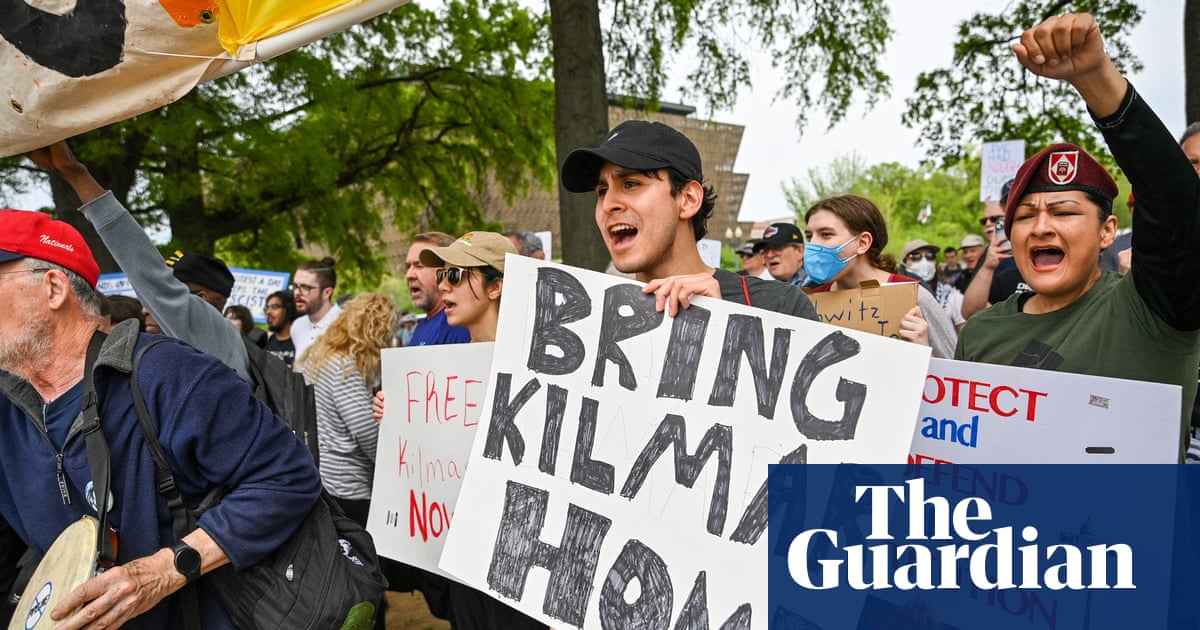A delegation of four HouseDemocratshas arrived inEl Salvadorto push for the release of Kilmar Ábrego García, part of a mission to challenge theTrump administration’s refusal to comply with a supreme court order to facilitate the return of the immigrant to the United States.
Representatives Yassamin Ansari of Arizona, Maxine Dexter of Oregon, Maxwell Frost of Florida and Robert Garcia of California touched down in Central America on Sunday, following a visit by theMaryland senator Chris Van Hollenlast week. The lawmakers are seeking to meet with Ábrego García, who had lived in the US for more than a decade before being swept up in a 15 March operation.
“Even with all of the illegal actions we’ve seen over the last couple of months, I think this is the one that terrifies me the most when it comes to the future of our democracy,” Ansari told the Associated Press in an interview.
According to a congressional aide familiar with the arrangements, the delegation will meet with officials at the US embassy on Tuesday morning to advocate for Ábrego García’s release and ask about other individuals transferred from the US who are currently detained inEl Salvador. The lawmakers will also receive classified briefings during their visit.
The case has become a flashpoint in the ongoing tensions between theTrump administrationand the supreme court, which ruled that the government had a duty to help return Ábrego García. Justice department lawyers have argued that they lack the power to secure his release from foreign custody.
Garcia, the representative fromCalifornia, said that Ábrego García deserves due process.
“They’re trying to demonize him, and we’re not here to defend him. He deserves due process, and everyone deserves due process,” Garcia told the AP. “What he did or may have done, that has to be decided by a judge.”
Ábrego García, who had protected legal status that should have prevented his deportation, was sent to El Salvador on a plane carrying alleged immigrant gang members. He is currently held in the country’s Terrorism Confinement Center (Cecot), a facility that has drawn praise from Republican lawmakers but criticism from human rights advocates.
The Trump administration admitted in court filings that “an administrative error” led to Ábrego García’s deportation to El Salvador – despite a 2019 immigration judge’s order protecting him – but the same officials say they will not return him to his American wife and disabled child in Maryland.
The White House press secretary, Karoline Leavitt, has defended the deportation, claiming Ábrego García was involved in human trafficking and terrorism, and said that if he were to return to the US, “he would immediately be deported again”.
